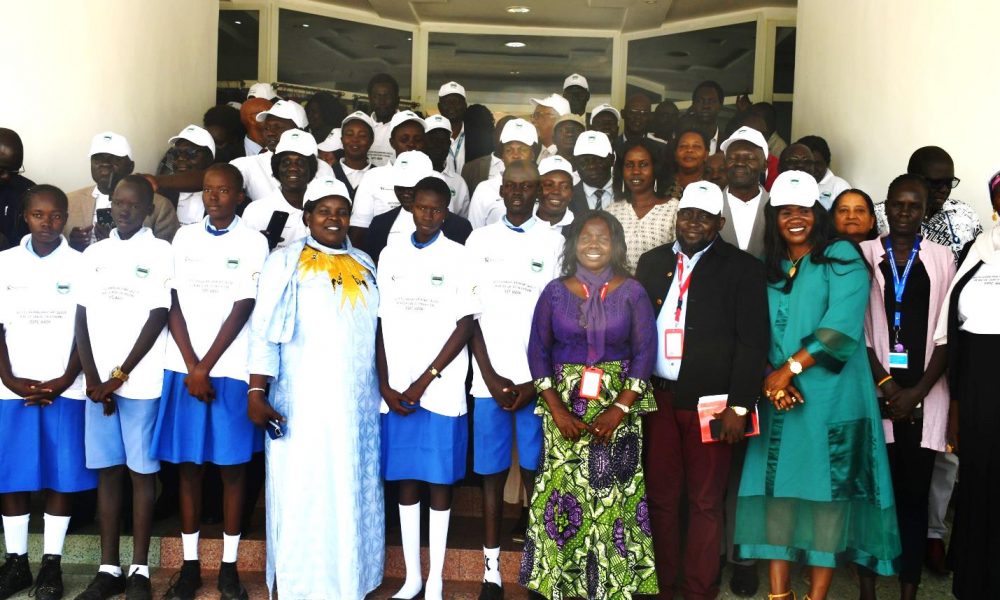By William Madouk
Specialized Committee on Water Resources and Irrigation in the National Parliament has taken the lead in establishing a South Sudan parliamentary caucus on WASH to address water, sanitation, and hygiene challenges in the country.
The newly formed multi-sectorial body was launched under the theme “together for clean water, sanitation, and hygiene systems through parliamentary action.”
In her remarks at the launch, the chairperson of the specialized committee on water resources and irrigation in the parliament, Bonguot Amum Oktech, said the launch was a commitment to the better health of South Sudanese.
“I am honored to be here for the lunch of the South Sudan parliamentary caucus on WASH. This occasion marks our commitment to the health and well-being of the South Sudanese people, especially in areas of WASH,” Bonguot said.
She added that access to clean water and good sanitation facilities is a fundamental right for all citizens.
“We must work collaboratively to implement policies and allocate resources that will enable the provision of sustainable WASH services across the country,” she continued.
To her, this will enable the country to meet the universal 2030 sustainable development agenda for access to safe water and sanitation for all.
“To make sure the caucus is fully functional, we have to create a task force that will be in charge of creating by-laws, the structure, and a legal framework that will guide us in accordance with our constitution,” Bonguot stressed.
Director general at the Ministry of Water Resources and Irrigation, Albert Eluzai, said, “We have been developing a lot of ways forward for scaling up wash services in the country, but the wheel has been very poorly picked up, simply because we lack Parliamentary Caucus.”
He added, “Because the parliamentary caucus will be the one to scale up this wheel and realize that this message is coming from the top level.”
Mr. Albert complained that the budget had not been passed on time but urged the parliamentary caucus to take action as well as pass appropriate laws on WASH.
According to the UNICEF and WHO 2019 joint monitoring program report, at least 63 percent of South Sudanese across the country still practice open defecation.
The UNICEF deputy country representative, Mr. Kamil Kamil, said South Sudan continues to be affected by conflict coupled with the impact of climate change, a lack of infrastructure, food insecurity, and limited access to clean water.
“The most alarming trend is that 63 percent of the population still practices open defecation,” he noted.
Assistant professor of political science and economic studies at the University of Juba, Dr. Benjamin Machar, said, “Too little water leads to droughts, Madam Chair. Too much of it leads to flooding.”
“Sometimes we in South Sudan think that we have water. No, it is because we are very few. We are very few in this country. Assume that we are going to be 30 million; we will see the need for water,” he added.




